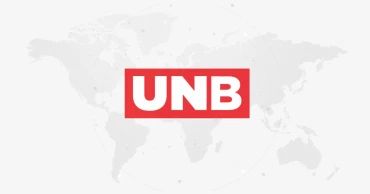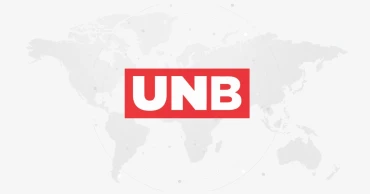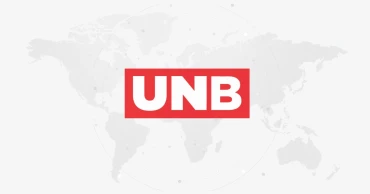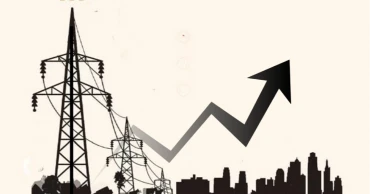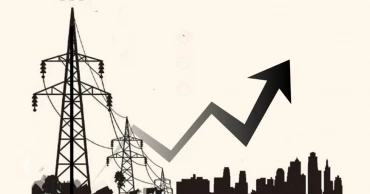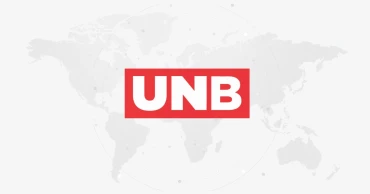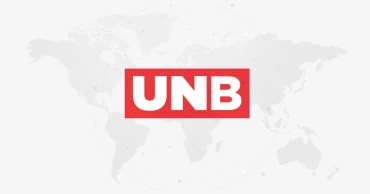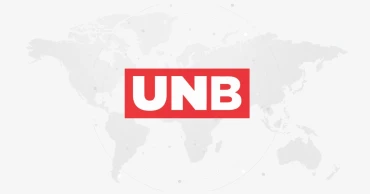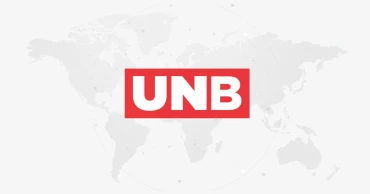Retail power tariff
Power tariff further raised at both bulk and retail levels, effective from tomorrow
Electricity tariff was raised in Bangladesh at both retail and bulk levels, with effect from tomorrow (February 1).
The Power Division — through administrative order and in two separate gazette notifications — raised the tariff.
According to the new order, the retail tariff was raised at different levels of consumers. The tariff was raised for lower-level consumers by an average 5 percent to Tk 4.14 per unit (each kilowatt hour) from Tk 3.94 per unit. Bulk tariff was raised by 8.06 percent to Tk 6.70 from Tk 6.20 per unit.
Enhancement in bulk tariff means, the distribution companies will purchase electricity by an increased rate of Tk 0.50 per unit from Bangladesh Power Development Board (BPDB) while enhancement in retail tariff means, consumers will have to pay enhanced rate for using electricity.
Read more: BPDB submits retail power tariff adjustment proposal seeking a 19.44 percent hike
Earlier on January 13, the government raised the electricity tariff by 5 percent at the retail level with effect from January 1.
At that time, the average tariff for all consumers went up by Tk 0.36 to Tk 7.49 from Tk 7.13.
On November 21, the bulk power tariff was hiked by 20 percent to Tk 6.20 per kilowatt hour by Bangladesh Energy Regulatory Commission (BERC) with effect from December 1.
The government recently amended the BERC Act empowering the Power Division to raise power, gas and petroleum fuel by administrative power any time it wants.
Read more: CPD raises question about power tariff enhancement proposal
Applying that amended Act, the new gazette notification was issued on January 30 to raise the electricity tariff at bulk and retail levels, bypassing the authorities of the energy regulator.
Meanwhile, energy experts believe the tariff enhancement decision came in compliance with the conditions of the International Monetary Fund (IMF) that recently approved $4.5 billion in loan to Bangladesh.
3 years ago
Hike in retail power tariff is less than in developed countries: Info Minister
The electricity tariff in Bangladesh hiked by 5 percent at the retail level is still less than that of many developed countries, said Information Minister Hasan Mahmud on Friday.
A slight increase in electricity tariff is proposed to adjust the subsidy borne by the government, he told the reporters at Rajshahi Circuit House.
“Our government is counting thousands of crores in subsidies for the power sector so that the people do not suffer and can get electricity at a cheap price.”
Rising fuel prices in Europe and the UK are driving electricity rationing, driving up prices. But in Bangladesh, the price has not been increased in that way as the power sector is still dependent on fossil fuels, he said.
Also Read: BNP paying for "imprudent" decisions: Hasan Mahmud
The government has raised the electricity tariff by 5 percent at the retail level that will be effective from January 1.
Now the average tariff for all consumers will go up by Tk0.36 to Tk7.49 from Tk7.13, the Power Division said in a media statement Thursday.
Regarding the prime minister’s rally in Rajshahi on January 29, Hasan said the rally will be in a field, but the whole city will turn into a rally that day. There will be millions of people joining the rally.
“We believe in the power of the people. And they (BNP) believe in conspiracy and the power of arms. So, all evil forces should be eliminated by the power of the people and that should be shown in the rally of Rajshahi on January 29.”
Marking the PM’s rally here, Hasan Mahmud arrived in Rajshahi this morning for an exchange of views with local leaders and a field visit.
3 years ago
Retail power tariff hiked 5% to Tk0.19 per unit for lifeline consumers, Tk0.36 on average for others
The government has raised the electricity tariff by 5 percent at the retail level.
Now the average tariff for all consumers will go up by Tk0.36 to Tk7.49 from Tk7.13, the Power Division said in a media statement Thursday.
The tariff for lifeline consumers, who use up to 50 units (kwh) a month, was raised by Tk0.19 to Tk3.94 per unit from Tk3.75.
The new tariff will be effective from January 1.
The monthly demand charge was also raised for different types of consumers.
The tariff was raised through an administrative order, issued by a gazette notification in the evening.
The decision to raise the power tariff at the retail level was taken under the new amendment to the BERC Act, which allowed the government to take any decision in this regard bypassing the regulator's jurisdiction.
However, the Power Division's 19-page gazette notification did not say anything about the average hike in tariff or its increase in percentage.
Read more: Govt to raise retail power tariff this month
State Minister for Power, Energy and Mineral Resources Nasrul Hamid clarified it saying the electricity tariff was raised by Tk0.19 per unit at the retail level, 5 percent up from the existing one.
Nasrul also said the tariff will be adjusted every month from now on.
"We had to raise the tariff to cover about 20 percent hike in bulk level while the government subsidy was also taken into consideration," he told UNB. "In this fiscal year, the government will have to provide Tk28,000 crore as a subsidy, which was Tk17,000 crore in the last fiscal year."
Justifying the 5 percent hike in retail tariff, the state minister said that the government had to go for upward tariff adjustment because of the growing energy prices globally. "The coal price has gone up to $250 per metric tonne, which was only $90 per MT last year."
Earlier, BERC raised the bulk power tariff by about 19.92 percent on November 21 with effect from December 1.
After that, six power distribution entities submitted their respective proposals to BERC seeking a similar, 19.44 percent, hike in retail power tariff at the consumer level.
But within a week, the cabinet on November 28 approved an amendment to the BERC Ordinance 2022, allowing the government to set fuel tariffs on its own under special circumstances without having to wait for the commission's public hearing and decision.
Read more: CPD raises question about power tariff enhancement proposal
Earlier, during a public hearing, the technical evaluation committee (TEC) of BERC recommended raising the weighted average tariff of electricity by 15.43 percent at the retail level against the demand of the distribution companies for hiking it by about 20 percent.
The committee suggested setting the weighted average retail tariff at Tk8.23 against the existing Tk7.13 per unit (each kilowatt hour) with a hike of Tk1.10 per unit.
Consumers Association of Bangladesh Vice-President Professor M Shamsul Alam called the power tariff hike by the government's raising with an administrative order a "bad example," which will "encourage corruption and irregularities in the power sector."
This move will be detrimental to ensuring accountability and transparency which is being established by BERC's public hearing, he said.
3 years ago
Govt to raise retail power tariff this month
The government has decided to raise the power tariff at the retail level this month bypassing the recommendation of BERC.
Reliable sources said the price is likely to be raised by an average 5 percent.
A gazette will be issued about the electricity hike soon, said the sources, speaking on condition they can’t be named.
Read more: Public Hearing: Evaluation committee for 15.43 pc power tariff hike at retail level
Meanwhile, State Minister for Power, Energy and Mineral Resources Nasrul Hamid on Thursday said that the electricity tariff will be raised by Tk 0.19 per unit at retail level.
The new tariff will come into effect from January 1, he told reporters.
Earlier in December, Nasrul said that if the Bangladesh Energy Regulatory Commission (BERC) delays to decide on retail power hike proposals, the Power Division will make its own decision.
The BERC raised about 19.92% bulk power tariff on November 21 with effect from December 1.
Subsequently, six power distribution entities submitted their respective proposals to the BERC seeking a similar 19.44% hike in retail power tariff at consumer level.
Read more: CPD raises question about power tariff enhancement proposal
But within a week, the Cabinet on November 28 approved an amendment to the BERC Ordinance 2022 to empower the government to set fuel tariff on its own under special circumstances without waiting for the commission's public hearing and decision.
Earlier, the technical evaluation committee (TEC) of BERC recommended raising the weighted average tariff of electricity by 15.43 percent at the retail level against the demand of the distribution companies for hiking it by about 20 percent.
The committee suggested setting the weighted average retail tariff at Tk8.23 against the existing Tk7.13 per unit (each kilowatt hour) with a hike of Tk 1.10 per unit.
3 years ago
Decision on retail power tariff likely by January 30
The decision on retail power tariff is likely to be announced by January 30.
“We want to announce the commission’s decision by January 30,” said Abdul Jalil, chairman of the Bangladesh Energy Regulatory Commission (BERC), while making his concluding remarks at the end of the public hearing on the proposals of the distribution entities to raise power tariff at the retail level.
Other members of the commission were present on the occasion.
The four-year tenure of the chairman and some other members of the regulatory body is scheduled to expire on January 30.
Read More: Public Hearing: Evaluation committee for 15.43 pc power tariff hike at retail level
Earlier, the technical evaluation committee (TEC) of BERC recommended raising the weighted average tariff of electricity by 15.43 percent at the retail level against the demand of the distribution companies for hiking it by about 20 percent.
The recommendation of the evaluation committee was placed at the public hearing today that began in the city’s BIAM Auditorium at 10 am.
The committee suggested setting the weighted average retail tariff at Tk8.23 against the existing Tk7.13 per unit (each kilowatt hour) with a hike of Tk 1.10 per unit.
However, the five-member commission, headed by its chairman Abdul Jalil, will make the final decision within the next 60 days as per the latest amendment to the BERC Act 2010.
Read More: Public hearing on retail power tariff hike proposals begins Sunday
All the six state-owned power distribution bodies - Bangladesh Power Development Board (BPDB), Bangladesh Rural Electrification Board (BREB), Dhaka Power Distribution Company Limited (DPDC), Dhaka Electric Supply Company Limited (Desco), Northern Electricity Supply Company PLS (Nesco), and West Zone Power Distribution Company Limited (WZPDCL) - submitted their proposals following BERC’s decision on November 23 last year to hike the bulk power tariff by 19.92 percent with effect from December 1.
The lone state-owned transmission entity Power Grid Company of Bangladesh (PGCB) also placed a separate proposal for raising wheeling charges.
The state-owned BPDB first placed its proposal on November 23, seeking a 19.44 percent hike in retail tariff. After that, all other distribution entities also placed almost the same proposal.
Read More: CPD raises question about power tariff enhancement proposal
Participating in the public hearing, all the consumer rights groups, including the Consumers Association of Bangladesh (CAB) strongly opposed the proposals of the distribution and transmission entities.
CAB Vice-President ASM Shamsul Alam said the initiative to increase the electricity tariff at the retail level is against the public interest.
“Instead of containing corruption, irregularities, and system loss in the power sector, the government is trying to find an easy solution through raising tariff,” he said.
Read More: BERC now to consult with govt before any move on retail power tariff hike proposals
“If the electricity tariff is raised even further, it will further push up inflation in 2023, which will only intensify public sufferings and the common people will feel the pinch as they will have to pay the ultimate price,” he added.
As per the latest number, the financial loss of the BPDB, the principal organisation in the power sector and also the single buyer of electricity from private sector power plants, is likely to increase by Tk18,094 crore in one year.
According to the BPDB’s own latest estimates, the financial loss will cross Tk48,000 crore in the 2022-23 fiscal from Tk29,915 crore in FY22, an increase of almost 67 percent.
Read More: Raising retail power tariff: 3 more distribution companies submit proposals
Sources said the BPDB’s revenue deficit has further increased due to its purchase of electricity at a higher price and sale at a lower price, the hike in petroleum fuel prices and also the increased exchange rate of the US dollar.
Officials said the recent 19.92 percent hike in the bulk tariff may help the BPDB reduce its loss by only Tk5,000 crore while a huge revenue deficit will remain a big burden.
However, the bulk power tariff hike put pressure on power distribution companies to submit their retail tariff hike proposal to BERC to cover their own revenue gaps.
Read More: BPDB submits retail power tariff adjustment proposal seeking a 19.44 percent hike
3 years ago
BERC now to consult with govt before any move on retail power tariff hike proposals
Bangladesh Energy Regulatory Commission (BERC) will now consult with the government before any move towards holding a public hearing on retail power tariff hike proposals.
"We think we should first consult with the government before starting any process for public hearing on the submitted proposals”, Mohammad Bazlur Rahman, Member (Power) of the BERC, told UNB.
Such remarks from the BERC Member came against the backdrop of the government’s latest move to amend the BERC Act 2003 to create scope for the government to take arbitrary decisions on raising retail and bulk power and energy prices.
Read more: Raising retail power tariff: 3 more distribution companies submit proposals
“After the proposed amendment, the BERC should not move into any conflicting situation”, Bazlur Rahman said.
The Cabinet on November 28 approved an amendment to the BERC Ordinance 2022 to empower the government to set fuel tariff on its own under special circumstances without waiting for the commission’s public hearing and decision.
The approval came at the Cabinet meeting with Prime Minister Sheikh Hasina in the chair at the PMO, said Cabinet Secretary Khandker Anwarul Islam while briefing the media at the Secretariat.
He said the BERC can wait for up to 90 days to review and take a decision on fixing tariff rates and this is a long time. The amendment is being done so that the government can set the fuel price on an urgent basis in a situation like what prevails now.
The possibility of importing fuel and energy under private arrangement was discussed at the meeting and the relevant authorities were given direction in this regard, he said.
However, BERC Chairman Abdul Jalil, a former secretary of the government, was reluctant to make any comment before going through the gazette notification on the proposed amendment.
"Let me see the gazette notification first… Then the commission will decide on any issue relating to public hearing or tariff fixation”, he told UNB.
Meanwhile, all the six state-owned power distribution bodies submitted their respective proposals on raising retail power tariff in subsequent of the bulk power tariff hike.
Read more: BPDB submits retail power tariff adjustment proposal seeking a 19.44 percent hike
Sources said the six entities—BPDB, Bangladesh Rural Electrification Board (BREB), Dhaka Power Distribution Company Limited (DPDC), Dhaka Electric Supply Company Limited (Desco), Northern Electricity Supply Company PLS (Nesco), West Zone Power Distribution Company Limited (WZPDCL)—have placed almost an identical proposal to raise retail power tariff aby about 20 percent.
They moved to submit their proposals following the BERC’s decision to hike the bulk power tariff by 19.92 percent with effect from December 1.
As per the latest statistics, the financial loss of the state-owned Bangladesh Power Development Board (BPDB), the principal organisation in power sector and also the single buyer of electricity from private sector power plants, is likely to increase by Tk 18,094 crore in one year.
According to BPDB’s own latest estimates, the financial loss will cross Tk 48,000 crore in the 2022-23 fiscal from Tk 29,915 crore in the fiscal year 2021-22, an increase of almost 67%.
Sources said the BPDB’s revenue deficit has further increased due to its purchase of electricity at higher price and sale at lower price, the hike in petroleum fuel prices and also the price escalation of US dollars.
Officials said the recent 19.92 percent hike in the bulk tariff may help the BPDB to reduce its loss by only Tk 5,000 crore while a huge revenue deficit will remain a big burden.
Read more: Bulk power tariff hike won’t affect retail consumers right now: Nasrul Hamid
On the other hand, the bulk power tariff hike puts pressure on power distribution companies to submit their retail tariff hike proposal to the BERC to cover their own revenue gaps.
The retail power tariff was last raised in March, 2020 by BERC after holding a public hearing.
Through an announcement, the BERC had raised the power tariff on a weighted average by 5.3 percent at retail level with effect from March 1, 2020.
As per that decision, the retail power tariff was increased from Tk 6.77 to Tk 7.13 per unit (each kilowatt-hour).
Officials said the Power Division is under tremendous pressure from the Finance Ministry to raise power tariff in bulk and retail to cover its huge financial losses.
The recent commitment of the International Monetary Fund (IMF) to provide a $4.5 billion loan has increased the pressure as the donor agency has tagged a condition to decrease subsidy in the power sector and raise power tariff to cover the loss, said a Power Division official.
3 years ago
BPDB’s financial loss set to increase by over two-thirds to Tk 48,000cr
The financial loss of the state-owned Bangladesh Power Development Board (BPDB) is likely to increase by Tk 18,094 crore in one year.
According to BPDB’s own latest estimates, the financial loss will cross Tk 48,000 crore in the 2022-23 fiscal from Tk 29,915 crore in the fiscal year 2021-22, an increase of almost 67%.
The directorate of Finance of BPDB prepared this calculation on the basis of an audited report, official sources said.
A top official of the finance department of the BPDB said that the recent hike in bulk power tariff may reduce the estimated loss by only Tk 5,000 crore.
Read more: Raising retail power tariff: 3 more distribution companies submit proposals
“We get some extra revenue only for 7 months as the new bulk tariff which increased by 19.92 percent, will be effective from December this year,” he added. Each fiscal runs from July 1 to June 30
PDB is currently charging Tk 5.21 per unit of electricity generation, which was raised by Tk 1.03 per unit.
As per the calculation, the financial loss has shot up excessively mainly for the two reasons—primary fuel price escalation and devaluation of the local currency.
“Among the two—the devaluation of local currency emerged as the major reason,” a top official of the BPDB told UNB.
He informed that the BPDB is going to incur a loss of about Tk 10,000 crore solely due to the high rate of US dollar.
“We’ve to now calculate the exchange rate of US dollar at Tk 107 both in paying the private power plant operators and also opening a letter of credit (LC) with the bank in importing equipment,” said the source, requesting anonymity as the issue is highly sensitive.
Not long ago, the BPDB calculated the US dollar exchange rate at Tk 85. Now Tk 107 exchange rate means Tk 22 extra in paying each dollar, said the official.
The BPDB has a power purchase agreement (PPA) with a huge number of private power generation companies to buy their electricity.
Read more: BPDB submits retail power tariff adjustment proposal seeking a 19.44 percent hike
Available statistics reveal, currently, the country’s power generation capacity is over 25,500 MW and more than 50 percent of electricity is generated by the private sector through independent power producers (IPP), rental and quick rental power plants.
Import of electricity from India is also counted as private sector generation.
The private sector operators mainly use furnace oil, natural gas and diesel. Of these, 4,700 MW is generated by using furnace oil.
According to Sustainable and Renewable Energy Development Authority (Sreda), of the total 25,585 MW of generation capacity comprising both public and private sector plants, currently 1768 MW (6.91 %) is coal-based, 11330 MW (44.28 %) gas-based, 6238 MW (24.38 %) furnace oil-based, 1341 MW (5.24 %) diesel-based, Imported 1160 MW (4.53 %), renewable 948.12 MW (3.71 %) and captive is 2800 MW (10.94 %).
BPDB officials said the organisation had to spend Tk 31,245 crore in 2021-22 for import of 4.8 million metric tons (MT) of liquid fuel, mainly furnace oil, for its own plants and also for the private plant operators as the primary fuel is a “pass-through item” in the PPA with private plants.
In the current fiscal year, the BPDB estimated to import 3.6 MT of furnace oil, down by 1.2 million MT, as the operation of diesel-based power plants has already been suspended by the government due to excessively higher prices.
To import the lower quantity of furnace oil, the government has to spend Tk 28,441 crore in the current fiscal of 2022-23, said the BPDB official.
Though the quantity of furnace oil is going to decrease substantially by 1.2 million MT, the cost is not substantially decreased as the BPDB will have to import the liquid fuel at much higher price than that in the previous year.
The cost per litre of furnace oil was valued at Tk 65 in the previous fiscal year. The price has gone up to Tk 85 per litre in the current year, said another BPDB official involved in the price valuation job.
“The higher cost of furnace oil by Tk 20 will ultimately create an additional burden of about Tk 2,500 crore,” he said, adding that the higher price of coal in local power generation and also import of power will have an impact in escalating the BPDB overall cost.
3 years ago
Raising retail power tariff: 3 more distribution companies submit proposals
Three more state-owned distribution companies submitted their respective proposals to the Bangladesh Energy Regulatory Commission (BERC) on Thursday to raise power tariff at the retail level.
These distribution entities are: Dhaka Power Distribution Company Limited (DPDC), Dhaka Electric Supply Company Limited (DESCO), and West Zone Power Distribution Company Limited (WZPDCL).
BERC Member (tariff) Mohammad Bazlur Rahman confirmed submission of the power distribution entities’ proposals.
Official sources said there are six power distribution entities in the country and all were asked by the government to submit their respective proposals on retail power tariff hike as early as possible, following the announcement on the new bulk power tariff.
“The proposals are almost identical and submitted as per directives of the government,” a top official of the Power Division told UNB.
Earlier on Tuesday the state-owned Bangladesh Power Development Board (BPDB) had submitted its proposal to the energy regulator seeking Tk 1.47 hike per kilowatt hour (each unit) at the retail level.
BPDB wanted to raise the retail tariff by 19.44 percent, to Tk 9.03 per unit from the existing Tk 7.56 per unit.
Chiefs of the two remaining distribution entities — Bangladesh Rural Electrification Board (BREB) and Northern Electricity Supply Company PLS (NESCO) — will submit their respective proposals to BERC on Sunday.
“We’ve finalised our proposal on retail power tariff adjustment. We’ll submit it on Sunday”, said BREB chairman Mohammad Selim Uddin.
NESCO managing director Zakiul Islam informed of similar preparation and plan of his company.
Read more: BPDB submits retail power tariff adjustment proposal seeking a 19.44 percent hike
The retail power tariff proposal was placed by BPDB within the next day after the bulk power tariff was raised.
On Monday, BERC raised the bulk power tariff by 19.92 percent – to Tk 6.20 per kilowatt hour (each unit) from the previous Tk 5.17 – with effect from December 2022, disposing a review appeal of the BPDB.
As per the BERC Act 2003, after receiving any proposal from any power distribution entity on tariff adjustment, BERC will hold a public hearing to listen to the opinions of different stakeholders and then it will announce its decision within 90 days from the conclusion of the hearing procedures.
After the bulk tariff enhancement, State Minister for Power, Energy and Mineral Resources Nasrul Hamid said that right now, the bulk power tariff hike will have no impact on the masses.
He, however, said the government wants to ensure uninterrupted power supply to consumers. “That’s why power tariff adjustment was needed,” he added that the power distribution entities are preparing their proposals to submit to BERC – seeking a hike in the electricity tariff at retail level.
“BERC will examine whether it will have any impact on retail consumers in future,” he told reporters.
Read more: Bulk power tariff hike won’t affect retail consumers right now: Nasrul Hamid
Consumers Association of Bangladesh (CAB) ASM Shamsul Amal said that the rights group will present its opinion when the proposals come for public hearing.
The retail tariff was raised on a weighted average by 5.3 percent to Tk 7.13 from Tk 6.77 per unit (each kilowatt-hour) with effect from March 1, 2020.
3 years ago
BPDB submits retail power tariff adjustment proposal seeking a 19.44 percent hike
State-owned Bangladesh Power Development Board (BPDB) has submitted its proposal to the energy regulator seeking Tk 1.47 hike per kilowatt hour (each unit) at the retail level, official sources said on Wednesday.
“We sought to raise the retail tariff by 19.44 percent to Tk 9.03 per unit from the existing Tk 7.56 per unit”, a top official of the BPDB told UNB.
Read more: Power tariff hike to deepen public suffering further: BNP
The retail power tariff proposal was placed by the BPDB just within the next day after the bulk power tariff was raised.
Official sources said there are a total six power distribution entities in the country and the Power Division has asked all of them to submit their respective proposals on retail power tariff hike as early as possible following the announcement on the new bulk power tariff.
On Monday, the BERC raised the bulk power tariff by 19.92 percent – to Tk 6.20 per kilowatt hour (each unit) from the previous Tk 5.17 – with effect from December 2022 disposing a review appeal of the BPDB.
Read more: Bulk power tariff hike won’t affect retail consumers right now: Nasrul Hamid
The BPDB submitted the retail power tariff hike proposal to the Bangladesh Energy Regulatory Commission (BERC) on Tuesday afternoon after receiving approval from the Power Division”, said a BPDB official who preferred not to be named because of the sensitivity of the issue.
He also mentioned that State Minister Nasrul Hamid has seen the BPDB’s retail tariff hike proposal before the submission to the BERC.
However, BERC Chairman Abdul Jalil has said he is yet to see the proposal.
As per the BERC Act 2003, after receiving any proposal from any power distribution entity on tariff adjustment, the BERC will hold a public hearing to listen to the opinion of different stakeholders and then it will announce its decision within 90 days from the conclusion of the hearing procedures.
After the bulk tariff enhancement, Nasrul Hamid has said that right now, the bulk power tariff hike will have no impact on the masses.
Read more: Bulk power tariff raised by 19.92%
He, however, said the government wants to ensure uninterrupted power supply to consumers. “That’s why power tariff adjustment was needed,” he added that the power distribution entities are preparing their proposals to submit to BERC – seeking a hike in the electricity tariff at retail level.
“BERC will examine whether it will have any impact on retail consumers in future,” he told reporters.
Consumers Association of Bangladesh (CAB) ASM Shamsul Amal said that the rights group will present its opinion when it comes for public hearing.
3 years ago
